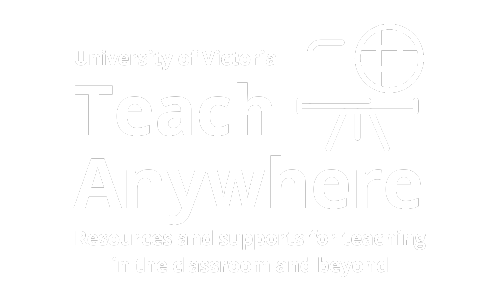Trusting and respectful relationships are key to belonging (Thomas 2012). Being able to develop a sense of belonging within higher education is an important factor for both students and instructors to ensure success. Belonging often begins with the question, “How do I belong?” Creating a welcoming environment, where care, warmth, and acceptance are promoted, can help students and new instructors answer that question.
This series is a set of six workshops that will enhance your awareness of the importance of belonging by provoking consideration of pedagogical approaches that support development of a sense of belonging. If you attend the whole series (all five sessions) you will be awarded a certificate of completion – a great addition to your dossier that indicates your commitment to professional development and to enhancing your performance as an instructor. All sessions take place in HHB 128, unless otherwise stated.
You can register for all the following workshops on Learning Central. Search by title to find the upcoming session or browse our upcoming sessions on our workshops and events page.
Longing for Belonging: A courageous conversation
Belonging is a two-way process, according to some respondents in my research on Muslim students’ experiences of ambient Islamophobia on the university campus and in the community at large. It is first and foremost, the feeling of being welcomed and included, in the classroom, the campus, the workplace, the society at large; and being trusted.
This interactive and practical workshop engages participants to: critically assess their classroom dynamics with regards to students’ interactions, and the intersections of power, privilege, and the socio-cultural and political realities; develop concrete skills on how to facilitate students’ belonging and inclusion in their curriculum and instruction; and develop clear and accessible strategies on how to create belonging and inclusion in both the curriculum and their approach to teaching. Students’ belonging and inclusion are indeed the cornerstone of a successful academic career.
Anti-racist Pedagogy in Technology Enhanced Classrooms
Diversity and inclusion play a vital part in the success of students in higher education. This session will continue the discussion around anti-racist teaching, focusing on technology mediated learning environments. Participants will critically reflect on their current practices as educators and their own experiences with racism/anti-racism. We will discuss anti-racism and generate practical tips for how to create classroom policies and practices that support an environment that is actively anti-racist. This will be a hands-on workshop where instructors will leave with practical tips that are useful for their own teaching practice.
Being, belonging, becoming in higher education – supporting our first-year students
This workshop addresses key concepts underlying students successfully being, belonging, and becoming in higher education. It addresses the conceptual framework behind belonging, and discusses specific pedagogies associated with ensuring a smooth and nurtured transition for students as they enter higher education. We will also practice important techniques that help students have a sense of belonging in their classes and within higher education, and brainstorm together conditions that would promote supportive learning environments for all students.
Not Available
Teaching with love
In this workshop, you will learn how a pedagogy of love can increase students’ sense of belonging and how to embody this teaching practice by recognizing students as humans first and students second. This workshop will help participants to reflect on what a pedagogy of love might mean for them and to begin the process of developing some practices that can increase the sense of belonging in their own classroom, both for their students and for themselves.
Not Available
Accessibility and Belonging: Fostering inclusion for and with students with disabilities
Accessibility isn’t a binary, it is relational. There are several proactive, standard-meeting, policy driven steps we can take to support accessibility and inclusion in any course, but potentially the most valid (and undervalued) assessment of a course’s accessibility is the assessment made by students. Discussions about ability and disability can be uncomfortable, confusing or challenging to navigate with students and colleagues. This discussion-based workshop is an opportunity to: build your awareness of, and comfort discussing, factors that foster inclusion and factors that inadvertently exclude disabled or ability-diverse students; hear student perspectives on accessibility and inclusion; andlearn about UVic services for students as well as services that support educators to build more accessible face-to-face and online courses.
Not Available
Kindness Pedagogy
This year of online teaching offered some real opportunities to change up teaching and incorporate new types of pedagogy, e.g. kindness pedagogy. There is literature that suggests that kindness conveys respect and dignity when directed at a person. In a nuanced way, kindness implies that a person belongs in that space. When kindness cues are used, the sense of belonging can be reinforced and made more overt. Kindness pedagogy differs from caring pedagogy in a number of ways, and lends itself to a front-end loaded approach in large classes. It also lends itself to teaching online, as students this past year were in need of a sense of community. Because kindness leads to inclusivity, it creates space for everyone. The presence or absence of kindness is often considered key to whether historically underrepresented students in, for example, STEMM subjects feel respected or not. Intentional kindness signals in an obvious way that fear has been removed from the setting. Kindness is therefore an excellent tool when applied to mentoring, teaching and supervising. The result is reduced hostility and a greater likelihood that individuals can prosper. References to supporting literature will be supplied.
Not Available
See all our teaching series
We have several other series to enhance your teaching.
